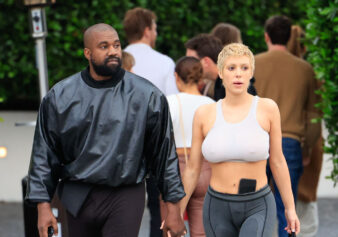A new pilot program in Illinois’ largest county will provide some residents with guaranteed income.
Cook County — the second largest county in the country after Los Angeles County — has launched a “Promise Guaranteed Income” pilot program. Under the program, eligible households will receive monthly payments of $500 for two years, no strings attached. The aim of the program is to help communities recover financially from the pandemic. The unemployment rate in Illinois is 4.5 percent, compared to the national average of 3.7 percent.

Cook County is made up of 134 municipalities, the largest of which is Chicago.
About the Program
In all, payments will be issued to 3,250 households in Cook County, which, according to the U.S. Census (2016-2020) has 1,991,474 households.
According to Toni Preckwinkle in a press release, the president of the county’s board of commissioners, the program is the “largest publicly funded guaranteed-income pilot in American history.”
“After months of hard work, Cook County is proud to be launching the application portal for the largest publicly-funded guaranteed income pilot in American history,” Preckwinkle said.
The $42 million project is being funded by President Joe Biden’s American Rescue Plan, a $1.9 trillion stimulus package signed into law in March 2021 to provide relief to those directly affected by the pandemic.
“Historically, both public and private institutions have been unwilling to directly invest in low- and moderate-income people without significant restrictions in place. This is a misconception and terrible bias in which past governments have taken part,” Preckwinkle tweeted.
The payments won’t be taxed. Residents who are a part of any other basic-income pilot program, such as the one already underway in Chicago, won’t be eligible to apply. In May, Chicago launched the Resilient Communities pilot program, offering $500 per month to 5,000 income-qualifying Chicago residents. The program is now fully enrolled.
How to Qualify
The program is open households with incomes at or below 250 percent of the federal poverty rate, which translates to one-person households that make less than $33,975, increasing by $11,800 for each additional person in the household. About 36 percent of households on Cook County are eligible based on those qualifications, according to the county.
“We are confident that by directly investing in our residents — by giving poor folks what they need most, cash — we will have a meaningful impact on our communities and create lasting change here in Cook County,” Preckwinkle said on Twitter.
Applications close on Oct. 21, after which 3,250 eligible applicants will be randomly selected to take part. The first payments will begin being distributed in December, with the remainder sent out by the end of January.
“We anticipate that there will be many more residents who apply than we are able to serve,” the county said on a website for the program.
The county says that participants can spend their money “however they see fit to meet their needs” and won’t be taxed on the monthly payments because they’ll be classed as tax-exempt charitable gifts.
“Our promise to Cook County residents is to make this program permanent in the coming years,” Preckwinkle said.
A Growing Trend
Illinois’ pilot program is the latest in a growing trend of basic-income programs being offered across the country. A universal-basic-income program debuted in Stockton, California, giving residents $500 a month.
More than 180,000 people applied for Los Angeles County’s universal-basic-income program. This program will distribute $1,000 a month to 1,000 residents for three years.
And in other parts of Illinois, there are similar programs in place. In addition to Chicago’s pilot program, in the city of Evanston the local government will be launching a pilot for 150 residents.
To encourage other cities to offer assistance programs, Stockton’s mayor launched a coalition of dozens of U.S. mayors working to promote support for the programs. Cities including Cambridge, Massachusetts; Birmingham, Alabama; and Atlanta have all launched pilot programs.
Nothing New
The concept of a guaranteed level of income, often called a universal basic income, dates back to at least the 16th century. The concept had been pushed by a broad range of people, including the late civil rights leader Dr. Martin Luther King Jr., 2020 presidential candidate Andrew Yang and Tesla founder Elon Musk.




